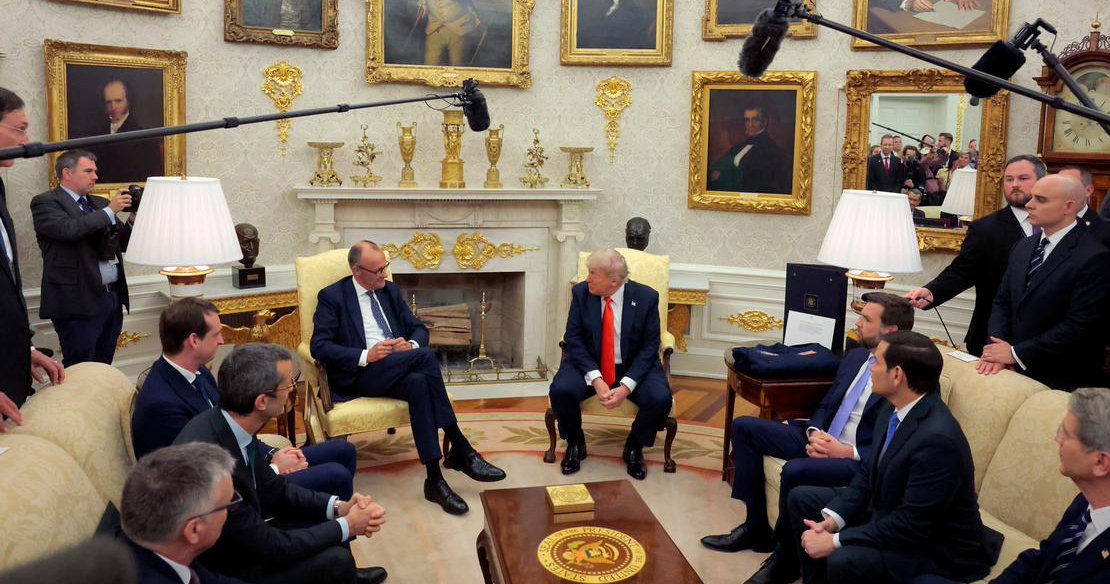A diplomatic start: Merz and Trump meet in the Oval Office
German Chancellor Friedrich Merz’s visit to the White House on June 5 was marked by a surprisingly warm tone. Standing before the Lincoln Memorial in Washington, Merz appeared satisfied. His two-and-a-half-hour meeting with President Donald Trump was longer than expected and largely cordial.
Ahead of the meeting, observers debated what dynamic would unfold. Recent visits from leaders like Ukraine’s Volodymyr Zelenskyy and South Africa’s Cyril Ramaphosa had been tense. By contrast, Merz received a handshake and a back pat at the White House entrance, with Trump telling reporters, “We love the Germans.” The two then entered the Oval Office.
The German chancellor later said he felt there was room for collaboration, despite ongoing challenges.
Building rapport with shared roots and values
From the beginning, Merz focused on emphasizing similarities between the two nations—and between himself and Trump. Early in the conversation, Merz gifted Trump a copy of his grandfather’s German birth certificate, noting the shared first name “Friedrich.” Trump accepted it with a handshake and smiled at the gesture.
Trump praised Merz during the meeting, calling him “an excellent representative of Germany” and “a friend.” Merz, in return, emphasized the need for mutual trust, particularly concerning global stability.
One central topic was U.S.–Germany cooperation on Ukraine. Merz called Trump “a key global figure” in efforts to pressure Russia, aiming to position the president as a potential partner for peace. Trump listened attentively, but whether his position will shift remains uncertain.
Military spending and shared responsibilities
While Trump hasn’t changed his previous stance on Ukraine, he acknowledged Germany’s increased military budget as a positive development. Merz highlighted Germany’s rearmament policy, which some analysts see as a step toward deeper alignment with U.S. strategic interests.
However, Trump joked that Germany should only grow its military “to a point,” sparking laughter in the room. Still, the remark echoed broader concerns about European defense autonomy and NATO balance.
Merz’s visit suggested progress, though cautious. Some believe he could become one of Trump’s key European interlocutors, capable of opening discussions on sensitive issues like trade disputes, including U.S. tariffs on steel and automobiles.
Trump acknowledged Merz’s importance in this context: “We’ll get a good trade deal. The EU plays a role—but you’re a key part of it,” he said.
The Merz-Trump dynamic in a broader context
While Merz sought to elevate his standing as a reliable European partner, his efforts were partly overshadowed by growing tensions between Trump and Elon Musk. The high-profile feud between the president and the tech billionaire drew headlines the same day, with public criticism exchanged across social media.
Despite this, Merz achieved what previous German leaders could not: Angela Merkel once had a handshake declined, and Olaf Scholz never made it to the Oval Office.
In interviews after the visit, Merz expressed optimism: “We met today for the first time as heads of state. I sincerely hope we can work together closely and transparently.”
This early rapport may set the tone for upcoming summits, including the G7 in Canada and NATO meetings in The Hague later this month. Whether Merz’s outreach will influence U.S. policy in a meaningful way remains to be seen.







